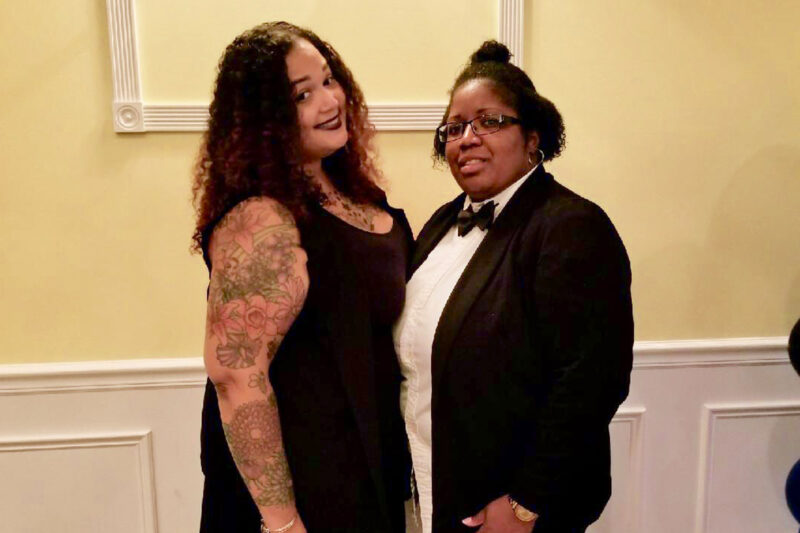A Tax-Funded Child Welfare Agency in Philadelphia Wants to Turn Away Same-Sex Couples Like Us


Update: Catholic Social Services has asked the Supreme Court to review the city of Philadelphia's requirement that tax-funded child welfare organizations accept all qualified parents, including same-sex couples. Shannon Graves and Paige Davis are following the case closely for good reason: They are same-sex foster parents who often take care of LGBTQ kids.
When we learned that a tax-funded foster care agency will not accept same-sex couples, we were hurt and wondered what this does to young people in need of a loving home. If faith-based child welfare agencies that contract with the city of Philadelphia, like Catholic Social Services, are allowed to discriminate against same-sex foster parents, that means kids will lose out on families that can provide the care and support they need. We know this as foster parents of eight kids since 2015.
We’ve always prided ourselves on being a resource for someone in need — whether that need is a few dollars to buy a meal or simply a loving hug. A few years ago, Cyndi Lauper shared a startling statistic from the True Colors Fund in a TV commercial: experiencing homelessness in America are LGBTQ. As a same-sex couple, learning this fact changed our lives forever. We’ve always loved kids and decided that the best way to help was to open our home up to them.
Since becoming licensed foster parents in 2015, we’ve fostered eight children on a long-term basis, with up to five kids at any given time. These kids ranged in age from infants to 20-year-olds, but the majority of them have been teenagers, who often face the hardest time finding foster families. We also provide emergency, short-term care for just a couple of week as longer-term placements are found. These days, we foster Anna,* who came to us a day before her 17th birthday, and Andrew,* who is 22 months old. We’ve helped her on her way, including helping her learn how to get a job.
Many of the kids we’ve fostered have said that no one’s ever even asked them how their day was. We work to teach our foster kids how to grow up, and they’re very responsive to discussing our expectations for them together as a family. Anna feeds off our pride in her achievements, and we strive to respond to her in the way that we would have wanted from our own parents. She recently told us that she wishes she could’ve been placed with us when she first entered the foster system — before she was, as she says, “broken” by previous bad experiences.
We have to tell the young people we’ve fostered that they aren’t broken. Suggesting that same-sex couples are unsuitable to care for children is not just hurtful to us, but it reinforces the worst ideas that many LGBTQ young people have about themselves — that they have less worth than other people.
know that agencies must prioritize finding qualified foster families. No one should ever be turned away from being a prospective foster parent because they are LGBTQ or otherwise fail an agency’s religious litmus test. The quality of Philadelphia kids’ lives depends on it.
We often think about what one of our former foster teens told us: “I was my best self at your home.” It’s why we open our home to foster teens — to give them the support they need to change their lives for the better, regardless of how long they’re in our care. The city of Philadelphia did the right thing by requiring all its foster agencies to abide by its nondiscrimination policies. We hope the federal appeals court agrees that public money cannot go to agencies who discriminate against foster parents like us simply because we’re a same-sex couple.
* The names of the children have been changed to protect their privacy.

